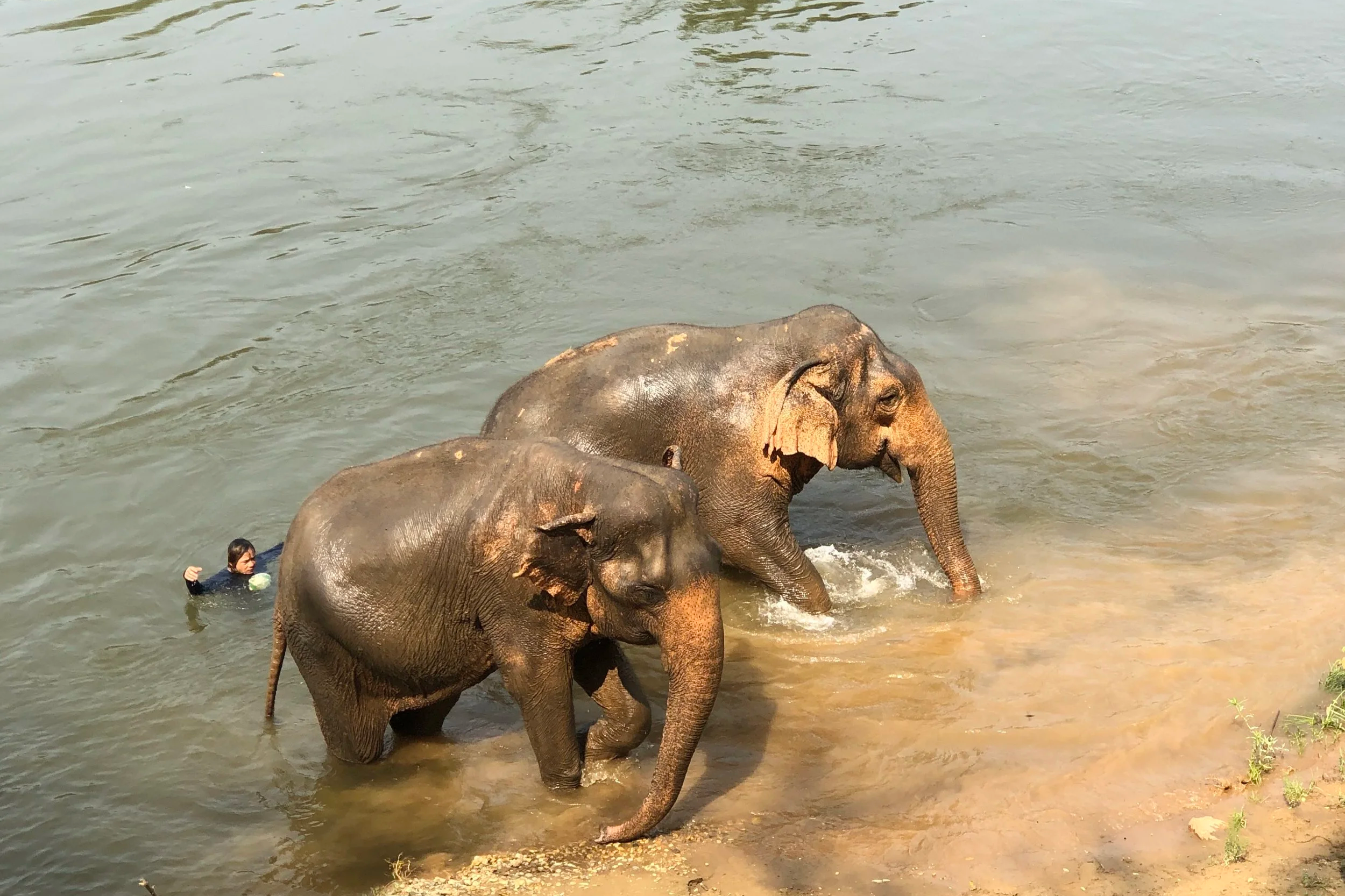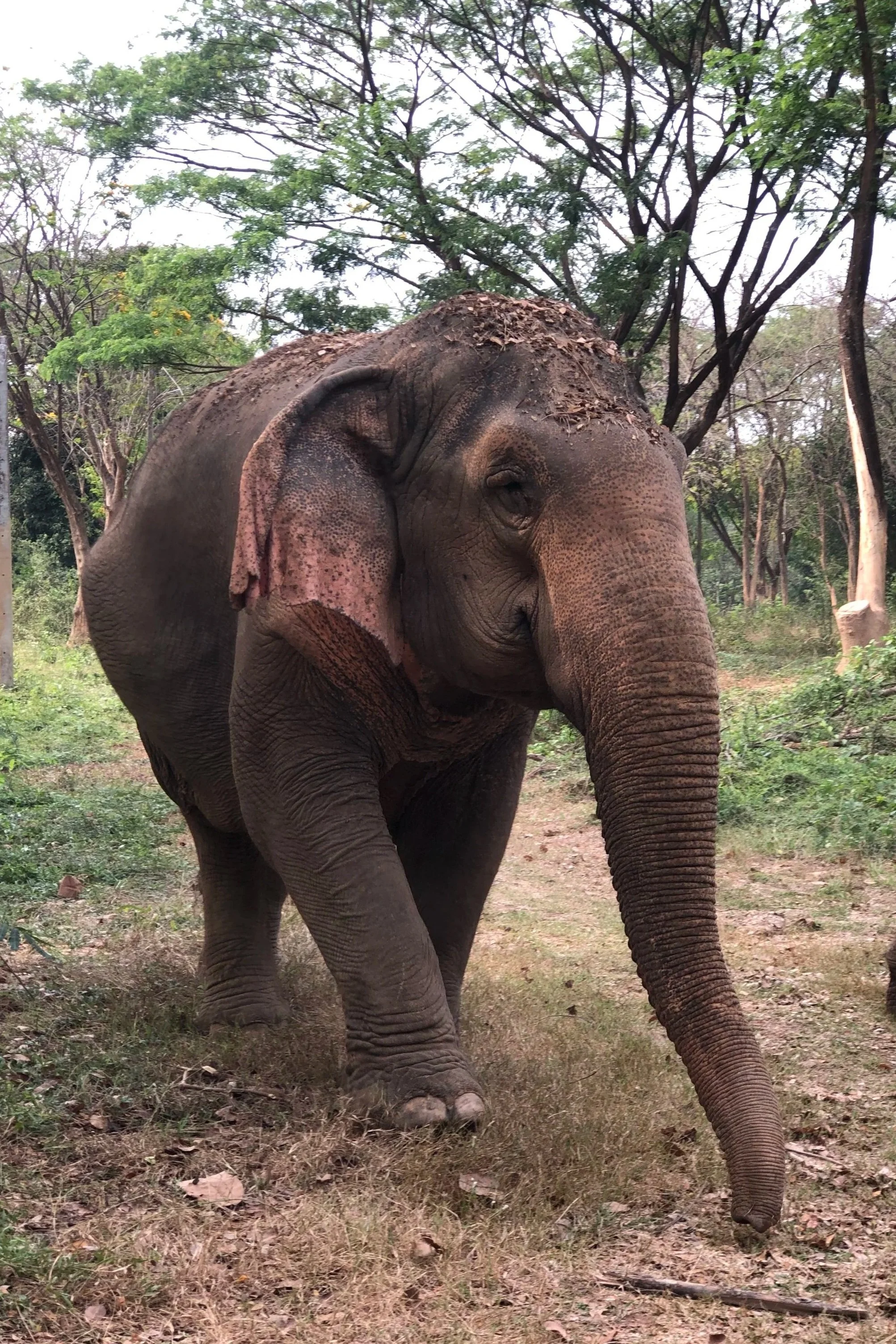A guide to ethically seeing elephants in Thailand
Seeing elephants in Thailand is like seeing a kangaroo in Australia, everyone who visits wants that experience! Unfortunately though, tourism has led to the mistreatment of elephants and there is a lot of misconception about what an ethical experience with elephants looks like in Thailand.
Guide #1 - No Riding
I feel like it should be obvious that riding elephants in Thailand is not ethical, however I am still shocked by the amount of people that have done it, want to do it, or have asked about it. Any tour operator that is offering elephant rides should be avoided if you care about ethically seeing elephants in Thailand. Whilst you may see photos of locals or mahouts riding an elephant, this should be the exception as the mahouts are the carers of the animal, and they form a special bond, feeding and bathing them. Any operation where tourists can ride elephants and the elephant has to do this over and over is not ethical, and I hope to see these places abandoned in the future.
Guide #2 - No bathing
I know it is very tempting to go and bathe elephants in Thailand, the photos look amazing and you are helping them bathe right! Trust me, I thought the exact thing…I did research, and I thought I found an ethical company where you could bathe rescued elephants and you were doing a good thing. The thing is, any experience where elephants are surrounded by that many tourists, and have that many hands on their bodies, it causes them stress. Don’t get me wrong, it is great to see so many sanctuaries where they rescue elephants from elephant rides, but these types of animal tourism operators are still not fully ethical. Sure, they are a lot better than riding elephants, but it still causes elephants stress and they are being forced to do something for tourists.
If you have been looking into an elephant bathing encounter in Thailand and you’ve stumbled across this guide, I hope it can help you realise that no matter how much a company claims to be ethical, it is still not an ethical activity that has the elephant’s best interest at heart.
Watching elephants Malee & Kammoon from an observation deck in Kanchanaburi Thailand. © 2025. Travels with Kaia. All rights reserved.
Guide #3 - Hands-off experiences only
My second trip to Thailand is where I learnt what a truly ethical elephant experience in Thailand looks like. It should be obvious, but elephants are wild animals, and they should be observed from afar. I learnt this at the Legacy River Kwai resort where I was staying and volunteering. The Somboon legacy advocates for hands-off tourism only - observing elephants from a safe distance, and watching them be the free creatures that they should be.
The Somboon Legacy Foundation educates visitors about the stress it can cause when elephants are being bathed by multiple people, with multiple hands and vibrations all over their body which they can’t see. Sure, there are some photos and videos out there where it looks like the elephants are loving it, but this should not be taken as evidence that they do. At the end of the day, elephants are large, wild creatures - if you care about ethically seeing elephants in Thailand, opt to stay somewhere like the Legacy River Kwai resort where they have elephant residents roaming around the grounds.
You can still watch them up close, I had some spectacular experiences watching the resident rescue elephants eating whilst I was only a few meters away. They will always have their mahout with them - and they still need to be bathed, which you can watch their trained mahouts do from an observation platform. Since my visit to the Legacy River Kwai, it delights me to hear that there are several other resorts taking this same hands-off elephant sanctuary post.
Elephant encounter at the Legacy River Kwai Resort, as part of the Somboon Legacy Foundation. © 2025. Travels with Kaia. All rights reserved.
If you’ve read this guide and you’ve participated in one of these elephant tourism activities without realising the ethical impacts, don’t beat yourself up. I am a firm believer that you only know what you know, and that is why travelling, and speaking with locals and people in the industry will help you do better the next time around.
If you are still planning your trip to Thailand though, and if you care about ethically seeing elephants in Thailand, remember the only true ethical elephant encounters are the hands-free, observation only experiences. I hope this helps you choose ethical travel for your next adventure!
Until next time,
Kaia


